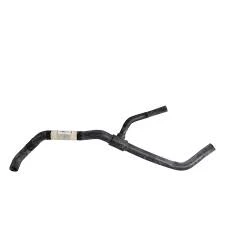fuel hose diesel
Dàmh . 08, 2024 02:51 Back to list
fuel hose diesel
Understanding Fuel Hose for Diesel Engines
When it comes to diesel engines, the importance of fuel hoses cannot be understated. Fuel hoses serve as vital conduits that transport diesel from the tank to the engine. Their functionality and integrity are paramount for the optimal performance of diesel-powered vehicles and machinery. In this article, we will delve into the significance, types, and maintenance of fuel hoses specifically designed for diesel applications.
Importance of Fuel Hoses
Fuel hoses perform several crucial functions in diesel engine systems. They must be capable of handling the high pressure often associated with diesel fuel injection systems. Additionally, they must resist degradation from the chemical properties of diesel fuel, including its propensity to cause deterioration in certain materials. A reliable fuel hose ensures a steady flow of fuel, minimizes the risk of leaks, and promotes overall engine efficiency.
Types of Fuel Hoses
Various types of fuel hoses are available for diesel applications, each designed for specific needs. The most common types include
1. Rubber Fuel Hoses These hoses are typically made from synthetic rubber compounds that can withstand the effects of diesel fuel. They are flexible and easy to install, making them a popular choice among diesel mechanics.
2. Hydraulic Hoses These hoses are designed for high-pressure applications and are often used in diesel systems that require a stronger material to handle greater pressures. They are reinforced with braided steel to enhance durability and resistance.
3. Thermoplastic Fuel Hoses Made from thermoplastic materials, these hoses offer excellent resistance to both chemicals and abrasion. They are lightweight and flexible, making installation easier, especially in tight spaces.
fuel hose diesel

4. Metal Fuel Lines In certain applications, metal fuel lines are used in conjunction with hoses to provide better protection and durability. These lines are especially common in high-performance diesel engines.
Maintenance and Inspection
Regular maintenance of fuel hoses is essential for the longevity and safety of diesel systems. Here are some key steps to ensure proper upkeep
- Visual Inspection Periodically inspect hoses for any signs of damage, such as cracks, bulges, or abrasions. Pay attention to the hose connections, as these are common points for leaks.
- Check for Leaks Look for diesel fuel stains or puddles around the hose connections. Any sign of leakage should be addressed immediately, as it can lead to significant hazards.
- Replace as Necessary If a hose shows signs of wear or has become hard and inflexible, it’s time to replace it. Using high-quality replacement hoses that meet the specific requirements for diesel applications is crucial.
- Proper Installation Ensure that hoses are installed correctly, using appropriate clamps and fittings to prevent fuel leaks. It is also essential to follow the manufacturer’s specifications for routing and securing hoses.
Conclusion
In conclusion, fuel hoses are integral components of diesel engines, playing a critical role in fuel delivery and engine efficiency. Understanding the types available, their maintenance, and safety measures can greatly enhance a diesel engine's performance and longevity. Regular inspections and timely replacements help avoid potential issues, ensuring that diesel-powered vehicles and machinery operate reliably and effectively. Keeping the fuel hose in top condition is not just a matter of performance; it's also about safety and sustainability in diesel engine operation.
